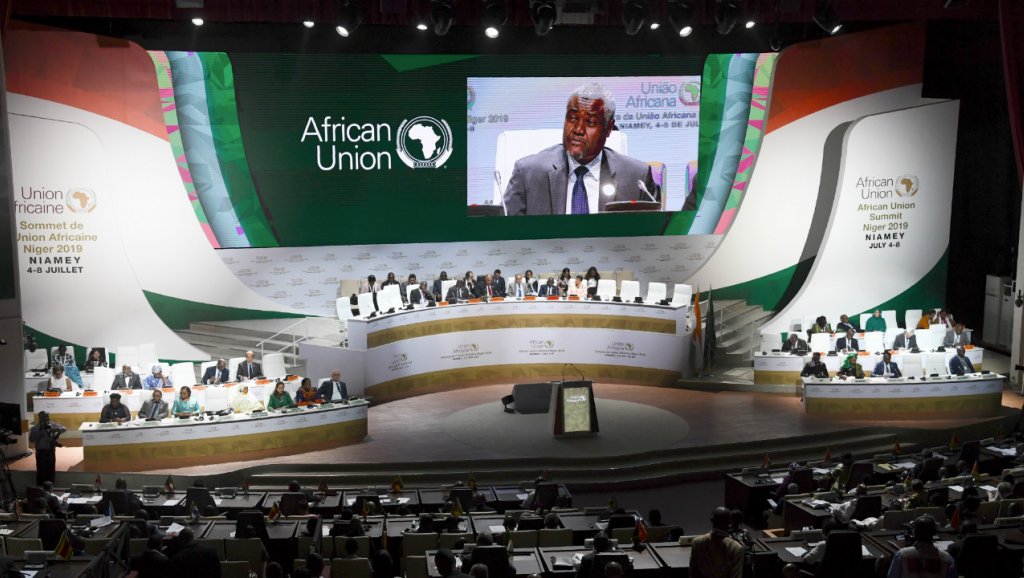Leaders sign a landmark trade deal at the African Union summit

African leaders met Sunday in Niger for the African Union (AU) summit, to sign a landmark free-trade agreement and address looming security and migration crises on the continent.
In a “historic” moment for the 55-member bloc, according to its chairman Moussa Faki, heads of state were gathered to officially launch the African Continental Free Trade Area (AfCFTA) at the two-day summit in Niamey, the Nigerien capital.
The agreement comes after 17 years of tough negotiations and was formalised at the end of April when the agreement crossed the launch threshold, which required ratification by at least 22 countries.
Nigeria, Africa’s most populous country and largest economy, announced this week it would, after all, join the pact in Niamey, having unexpectedly pulled back from the agreement last year.
Nigeria’s chief trade negotiator, Ambassador Chiedu Osakwe, said President Muhammadu Buhari would sign the landmark agreement, “opening Africa up to abundant opportunities.
“We weren’t dragged into this, we are a leading advocate,” Osakwe told AFP. “But it is about assessing how to make it work for Nigeria and indeed the continent.”
State trade ministers agreed the zone should be operational from July 2020, AU Trade and Industry Commissioner Albert Muchanga told AFP, as countries needed time to adapt to the agreed changes.
An official start date was set to be agreed by heads of the state Sunday with only Benin and Eritrea still to sign the agreement.
There are still key issues that need to be ironed out, however, such as setting common criteria to determine rules of origin for traded products.
Amaka Anku, Africa analyst at Eurasia Group, described the deal as a positive step but said the AfCFTA was still “a long way from taking off”.
The AU estimates that implementing the AfCFTA will lead to a 60-per cent boost in intra-African trade by 2022.
At the moment, African countries trade only about 16 per cent of their goods and services among one another, compared to 65 percent with European countries.
High security
Also on the summit agenda is security an issue afflicting the Sahel in particular.
Summit host, Niger has faced constant attacks by jihadist groups.
Its fellow members in the G5-Sahel security pact Chad, Mali, Burkina Faso and Mauritania will seek backing at the AU summit to push for a greater UN security force to address the terror threat.
The countries hope to activate Chapter VII of the UN Charter, a Nigerien security source told AFP. The chapter allows for the UN Security Council to determine a threat to peace and propose measures, including military deployment, to deal with it.
“No prosperity, no integration is possible without peace,” said Faki, who stressed the importance of an AU Peace Fund launched in 2018 to finance security activities and called on member states to fulfil their financial promises.
So far, only $116 million has been received for the envisaged $400-million fund.
Niamey is under high surveillance, with summit facilities subjected to strict access controls and a heavy security presence.
“We have a special unit of several thousand men” on duty, said Defence Minister Mohamed Bazoum.
The city has been revamped and boasts a brand-new airport, upgraded roads, and new hotels for the occasion.
Migration crisis
The leaders will also discuss boosting intelligence cooperation and the global migration crisis.
An airstrike Tuesday on a migrant detention centre near the Libyan capital, Tripoli, killed 53 and injured more than 130.
The AU’s Peace and Security Council on Friday condemned what it called a “savage attack”, calling for an independent inquiry into the incident.
AU member states needed to quickly repatriate their nationals from Libya “in order to prevent any further exploitation of their fragile situation,” they said in a statement.
(FRANCE 24 with AFP)